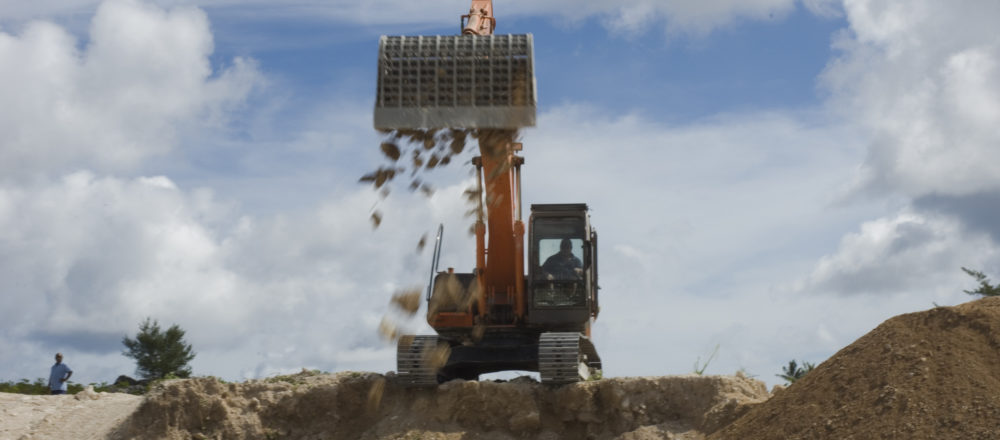As the extractive industry continues to discover opportunities, the issue of company compliance in the respect for human rights has become increasingly significant. This reinforces the need for further action in ensuring that existing multi-stakeholder initiatives are both acknowledged and implemented.
The employment of national security forces
The employment of national security forces in an attempt to secure company assets in conflict-affected areas has become a common approach to ensure the risk of illicit activity is kept to a minimum while opportunities for profit enhancement continues. Existing initiatives aim to assist companies to prevent human rights abuses, a priority which has often been neglected until it is too late. As such, this article will highlight the growing risk companies are exposed to when employing national security forces, in addition to emphasising the importance of existing multi-stakeholder initiatives.
The mining, oil and gas industries are continuing to expand and the likelihood of companies acquiring assets in conflict-affected areas is highly probable. Contributing factors such as changes in consumption patterns has led extraction companies, particularly in the last ten years, to increase their exploration budget from US$2-18 billion.
As such, the role of national security forces plays an integral part in the ability of these companies to ensure employee security and minimise illegal mining while maintaining national economic growth. This is often seen in areas of Latin America and Africa as per the cases of Congolese rebels at Soco International’s assets in the Democratic Republic of Congo and national police forces at the African Barrick Gold’s North Mara Mine in Tanzania.
National armed forces are often employed in an attempt to ensure the security of both company employees and the asset itself. This is often due to their in-depth understanding of the cultural and socio-economic grievances endured by indigenous communities affected by companies’ operations.
In most cases it is through these partnerships that companies are exposed to increased risk of harsh crackdowns often seen as violent responses to protests. The tentative security situation in conflict-affected areas can be deemed an opportunity for companies to avoid being exposed to corporate liability: a legal area in which the line between complicity and responsibility is blurred.
Complicity versus responsibility
The recent case of African Barrick Gold, a major gold mining business operating in Tanzania, highlights the human rights tensions experienced by companies and individuals operating in the resource sector in East Africa. In 2011, allegations surrounding liability for the deaths and injuries of locals who were shot or assaulted by Tanzanian police were filed by community members. The police remain an integral part of the Company’s security. Therefore, African Barrick has been accused of negligence given that it failed to curb the use of “excessive force” by Tanzanian police.
The deployment of national forces to the area was done so in order to address heightened security risks caused by protests regarding the asset’s impact on the community. Despite being a signatory to the Voluntary Principles on Security and Human Rights, the company faces an uphill battle in an attempt to repair any public relations damage done. The law suit filed in 2011 is being heard the High Court of Justice of England and Wales, and is ongoing.
The Voluntary Principles on Security and Human Rights promote a set of principles which guide mining, oil and gas companies with international operations in the provision of security in a manner that upholds human rights. They were established in 2000 with the objective of guiding companies in their maintenance of safety and security of their operations through a framework that encourages respect for human rights. Currently, there are 7 participating governments, 21 corporations, 12 NGOs and 6 observer members.
Whilst African Barrick Gold had endorsed the Voluntary Principles, endorsement alone does not remove responsibility in cases of rights abuses. The Voluntary Principles outline a number of provisions that address issues of proportionality and use of force, improved company engagement for protection of human rights by their security contractors, as well as the monitoring of progress of investigations into alleged abuses.
Complicity refers to involvement with others in activities that are unlawful or morally wrong. More specifically, the case of African Barrick Gold was based upon their complicity with, as opposed to their responsibility, in the deaths of civilian protesters- requesting local police forces to respond to a heightened security situation. In this case, responsibility refers to a sense of direct accountability or blame for something, e.g. the deaths and injuries of civilians by local police forces.
The concept of conflict-affected and highrisk areas has long evolved from its previous definition as an area in a state of armed conflict. Instead, the United Nations Global Compact extends the definition to include areas where there is a presence of an illegitimate or unrepresentative government; a lack of economic and social opportunity; systematic discrimination against parts of the population; a lack of political participation; poor economic management often due to corruption; prevalent political and social instability; weak or non-existent security; a high risk of human rights abuses, and widespread and systematic violations of international law; and pervasive violence, including both inter-state and intra-state conflicts. This also includes post-conflict societies attempting to re-establish parameters often concerning civil society and the rule of law.
Adjudication and enforcement
Implementing mechanisms which establish ‘ropes’ for companies to follow in the area of corporate social responsibility and human rights, in conjunction with ensuring that communal, employee and investor grievances are acknowledged and addressed, is an integral part of success and one that needs to be adhered to. More commonly, this adherence can be achieved through the establishment of due diligence and grievance mechanisms.
Due to jurisdictional issues, it is difficult for tribunals to successfully hold corporations accountable for complicity in gross human rights violations. Enforcement of international human rights obligations might be tricky, but since the Nuremberg Trials, the international community has shown a willingness to take action on violations.
However, the mandated tribunals and courts are only able to deal with human rights abuses committed by States, not by companies. Additionally, individuals and companies are not bound by international human rights laws, but domestic legislation. On the other hand, States are bound by international human rights law, and if accused of committing the violation directly, they can be prosecuted by the ICC.
Corporate complicity in gross human rights violations remains a tentative, tenuous subject in international law. However, Australia upholds its prohibition on aiding and abetting, allowing for the criminal prosecution of both corporations and relevant individuals for complicity within Australia.
Extractive industry companies have historically been criticised of being unconcerned with their impact on communities or the environment. And yet, building harmonious community relations and engaging in meaningful stakeholder consultation remains essential to minimising risk. Positive relationships are critical for reducing risk as well, just for being good corporate citizens. If ignored, this could have dire consequences for companies, national forces and indigenous communities.
The issue of mining violence and corporate social responsibility (CSR) has become increasingly significant to extractive industry operations and their operators. International codes and standards are needed and have more relevance than ever, but their voluntariness and lack of legal ‘teeth’ means that companies are still exposed to the law. Companies must acknowledge and integrate human rights into a policy of corporate social responsibility in order to minimise all risks, particularly those involving human rights.
Looking forward
“By expanding the concept of corporate responsibility to include respect for human rights, access to remedy and grievance mechanisms and ensuring the human rights lens extends into indigenous communities, such dialogues and forums serve as pillars of a global effort whose success depends upon widespread dedication and adherence.”
Australia’s large extraction and mining industries remain heavy hitters, both domestically and internationally. As such, Australia could stand as a pioneer of true corporate social responsibility by upholding human rights in the overseas operations of private Australian companies.
The Australian Human Rights Commission and the United Nations Global Compact Network Australia recently met with representatives from a cross-section of Australian society, including NGOs, academics, and industry experts, in an attempt to enhance efforts surrounding a national dialogue on business and human rights.
By expanding the concept of corporate responsibility to include respect for human rights, access to remedy and grievance mechanisms and ensuring the human rights lens extends into indigenous communities, such dialogues and forums serve as pillars of a global effort whose success depends upon widespread dedication and adherence.
There remains a need for substantive action by companies who have yet to embrace existing multi-stakeholder human rights initiatives. While these initiatives remain voluntary, they provide opportunities for additional guidance which, in turn, guarantees that human rights are not a mere consideration but, in fact, are regularly adhered to. The implementation of such initiatives on a global scale will not only produce substantive outcomes but also serve to minimise human rights risks that concern both the companies and current or future investors.
—
Bianca De Bortoli is an Intern at Tsamota Ltd. She has previously interned at the United Nations Office on Drugs and Crime in Tehran, and is currently studying a Masters in Peace and Conflict Studies at the University of Sydney.





